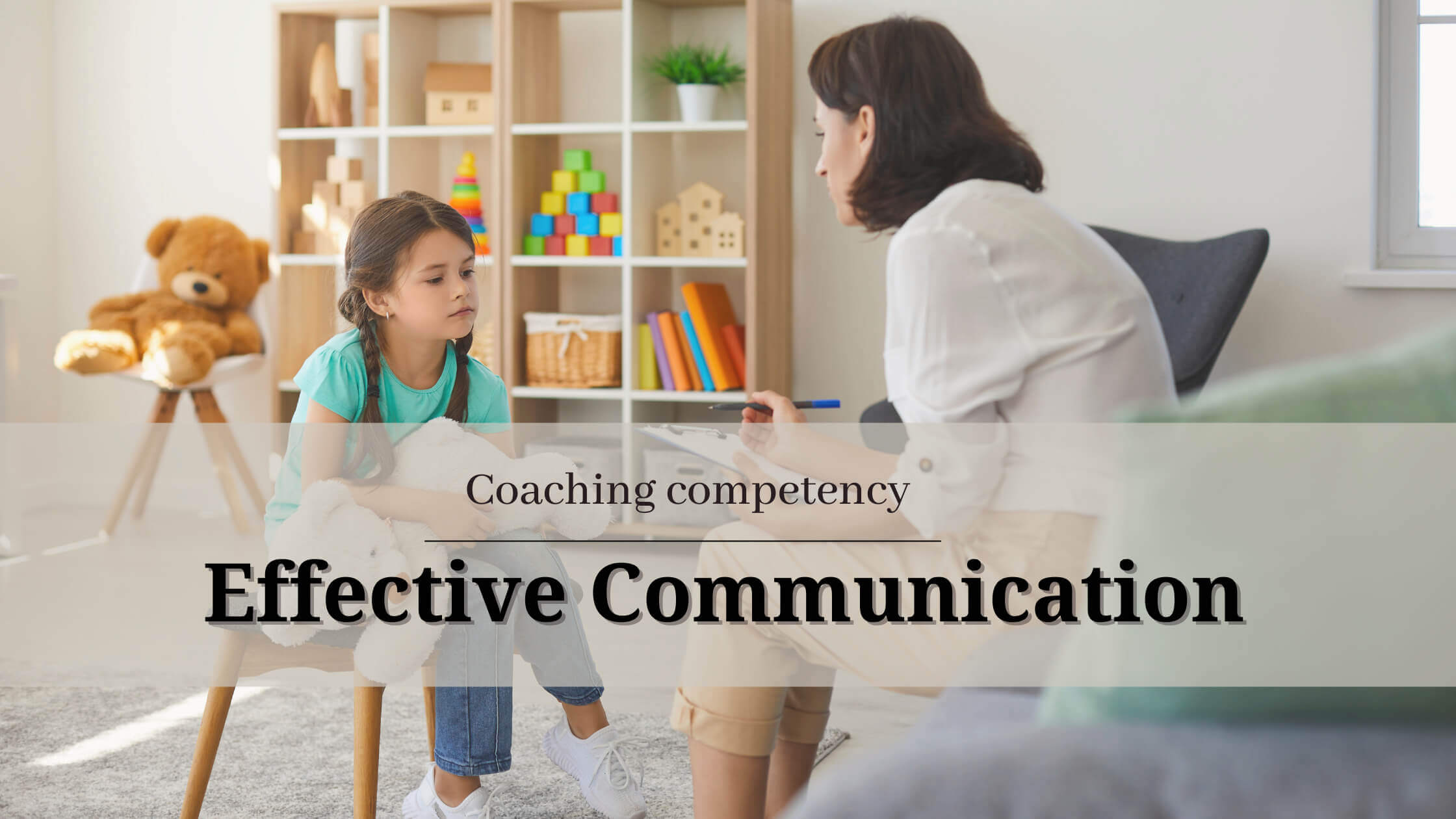In the rapidly evolving field of coaching, there is one skill that stands out as paramount for fostering growth and change: effective communication. As whims of intuition and assumption fall short, the art and science of Effective Communication Coaching Competency emerges as a beacon for those who dare to transform lives profoundly.
In this in-depth look at the 9th CHC Core Coaching Competency, we delve into the constructs and foundations of the art of effective communication in coaching. Effective communication is the cornerstone of successful coaching, enabling coaches to build trust, understand their clients, and facilitate meaningful change.
What is Flexible/Person-Centric Communication?

Imagine a bridge spanning the gap between what is said and what is heard, where messages are not merely spoken but deeply understood. This is the essence of flexible/person-centric communication. While engaged listening and powerful questioning stand as pillars of coaching, we must adapt our messages to the preferred communication styles of our clients.
From suggestibility to love languages and representational systems, a multitude of factors influence how a message is conveyed and received. As coaches, we have the responsibility to ensure clarity, transferring the onus of comprehension from our clients to ourselves.
In simple words, Flexible or person-centric communication involves adapting your style to match the client’s preferred communication method.
Why is This Competency Transformational?
Communication is the lifeblood of life coaching and any healthy human relationship. It’s a vital skill that everyone should master, yet it’s often misunderstood. This competency is transformational because our communication model seamlessly integrates various processes and modalities, helping coaches better understand and practice the art of effective communication.
Techniques for Effective Communication included in the Cognitive Hypnotic Coaching and Psychotherapy Diplomas

- Suggestibility Mastery: Harness the power of suggestibility to plant seeds of transformation within your client’s subconscious mind.
Coaches can benefit by tailoring their communication to these styles: being clear and direct for literal types, and using subtlety and metaphors for inferential types, thus enhancing rapport and coaching effectiveness.
By artfully weaving literal and inferential language, you can bypass conscious resistance, facilitating profound shifts in perspective and behaviour. - Emotional and Physical Sexuality (E&P Factors): The “E&P Factor” introduces the concept of Emotional and Physical traits, offering coaches a powerful framework to enhance their practice. This concept helps coaches understand the natural tendencies of their clients, improving communication and interpersonal dynamics.
By tailoring their approach to match clients’ emotional or physical inclinations, coaches can resolve conflicts more effectively, foster greater self-awareness, and set achievable, motivating goals. - Conversational Hypnosis: Leverage the principles of conversational hypnosis to establish a deep rapport with your clients, guiding them into a heightened state of focused attention. This powerful technique allows you to bypass conscious filters, facilitating lasting change at the subconscious level.
- NLP Meta-Model and Language Patterns: Unlock the hidden depths of communication by employing the NLP Meta-Model and strategic language patterns. These potent techniques enable you to navigate beyond surface-level exchanges, uncovering the underlying intentions, beliefs, and motivations that shape your client’s reality.
- Decoding Love Languages: Discover the art of expressing appreciation in a manner that resonates deeply with your client’s emotional needs. By understanding and leveraging the five love languages – words of affirmation, quality time, receiving gifts, acts of service, and physical touch – you cultivate an environment of trust and emotional safety, laying the foundation for profound growth.
- NLP Accessing Cues: Gain invaluable insights into your client’s thought processes by interpreting their eye movements and other subtle cues. This heightened awareness allows you to tailor your approach, ensuring that your communication aligns seamlessly with their cognitive patterns, fostering greater understanding and receptivity.
- NLP Representational Systems: Attune your communication style to your client’s preferred learning modality – visual, auditory, or kinesthetic. By mirroring their natural processing preferences, you ensure that your message resonates with clarity and impact, enhancing understanding and retention.
- Metaphors and Similies: Harness the transformative power of metaphors and similies to convey complex concepts in a relatable and engaging manner. These literary devices serve as bridges, connecting abstract ideas to tangible experiences, fostering deeper comprehension and lasting impact.
Through this comprehensive toolkit, the Cognitive Hypnotic Coaching and Psychotherapy Diploma equips you with the skills to navigate the intricate landscape of human communication, empowering you to forge unbreakable bonds with your clients and catalyze profound, lasting transformations.
Personal Experience and Testimony

Reflecting on my journey, I realize that knowing about effective communication is different from practicing it effectively. Initially, I communicated intuitively, often generalizing, distorting, and deleting important information unknowingly. The Cognitive Hypnotic Coaching Program transformed my approach, providing a structured framework that enhanced my skills and effectiveness as a coach.
Conclusion
Effective communication is essential for coaching success. The Cognitive Hypnotic Coaching Program offers the tools and techniques to master this competency, enabling coaches to build stronger, more effective relationships with their clients. If you are a coach or aspiring to be one, we highly recommend exploring the Cognitive Hypnotic Coaching framework.
For those ready to take the next step, consider our Comprehensive Coaching Diploma to become a Cognitive Hypnotic Coach. Enhance your skills and transform your coaching practice today.
By implementing these improvements, the article will be more engaging, informative, and SEO-friendly, making it more valuable to practicing coaches and increasing its chances of ranking highly for the targeted keyword.

